Scotland's 4 million voters will be given a new, shorter question on independence in next year's referendum after Alex Salmond's government accepted criticisms from the Electoral Commission.
His deputy, Nicola Sturgeon, said the government was "delighted" with the commission's revised question: "Should Scotland be an independent country? Yes/No," and was also happy to accept the proposed spending limits for next year's campaign.
Paving the way for spending of more than £6m in the final 16-week campaign over the UK's constitutional future, she confirmed her government would adopt all of the commission's recommendations on the referendum question and campaign funding.
The commission endorsed widespread criticisms from polling experts and opposition parties of Salmond's original question, "Do you agree that Scotland should be an independent country?" That was not neutral enough, it ruled. The wording was potentially biased because voters were less likely to reject an invitation to agree to a proposition, it added.
John McCormick, the electoral commissioner, said Salmond's favoured question had been rigorously tested, adding: "Any referendum question must be, and be seen to be, neutral. People told us that they felt the words 'do you agree' could lead voters towards voting 'yes'.
"People had a clear understanding that 'independent country' meant being separate from the UK."
But McCormick also put pressure on the British government by urging both it and its Holyrood counterpart to set out before the referendum how independence would be negotiated if Scotland voted to leave the UK. The UK government has rejected Sturgeon's demands for talks on the mechanics of that post-referendum process.
The commission's rulings were widely welcomed, and immediately backed by the Scottish Greens, who support independence, while Labour, the Scottish Liberal Democrats and the Tories, which all oppose it, said they agreed on both the new question and the spending limits. The UK government and the pro-independence Yes Scotland campaign also backed the recommendations.
Sturgeon, who is leading the Scottish government's referendum strategy, said she was pleased the commission had agreed that clarity on the mechanics of independence negotiations was needed.
"While its view is that our proposed question was clear, simple and easy to understand, I am nevertheless happy to accept [the commission's] recommended change."
The pro-independence campaign appears to have gained most from this formula: the Scottish Labour party and others who oppose independence wanted the commission to make sure the UK was included in the question, to play up notions of a split from the UK.
Michael Moore, Scottish secretary in the Westminster government, said it accepted the commission's recommendations. "The UK government has always acted on the advice of the Electoral Commission for every previous referendum," he said.
The commission also rejected the view of the Scottish National party and Yes Scotland that total spending by each of the two official campaigns should be capped at £750,000 each, doubling that limit to £1.5m. Third parties, such as trade unions, businesses and civic groups, will be able to spend up to £150,000 – three times the limit proposed by the SNP.
Fearing it could be outspent by richer, UK-level parties and their wealthy backers, Sturgeon told the SNP conference last October: "Make no mistake, this time around, Scotland's future will not be bought and sold for anyone's gold."
The commission also recommended setting spending limits for the individual parties based on their votes in the 2011 Scottish parliamentary elections, again rejecting proposals by the SNP and Yes Scotland for far lower caps that would have limited total spending to about £1.3m for each side.
That will mean the SNP and Scottish Greens will have a combined limit of £1.49m, while Scottish Labour, the Tories and Lib Dems will be able to spend a combined £1.43m.
Sturgeon said these funding limits created a level playing field for the rival campaigns. It also showed the commission had given way on its initial funding proposals, which would have given the more numerous anti-independence parties higher spending levels.
McCormick said the commission's proposals actually created a "level ceiling", since the campaigners and parties still had to raise the money needed. But even so, the new limits of £1.5m for each official campaign were very close to the limits set for Holyrood election campaigns.
He had resisted the SNP's lower limits because of the significance of the issue. "Our principle about funding is that we should deter excessive spending but we shouldn't constrain the campaigning. It is an historic referendum and our comparator is the expenditure for Scottish parliament elections," he said.
Alistair Darling, the former Labour chancellor and leader of the pro-UK Better Together campaign, said he was pleased the commission had rejected Salmond's "fixed" question and the SNP's efforts to "silence their opponents" by setting low spending levels.
"I think that once the referee has blown the whistle the players should obey the decision," he said, adding: "Now that the rules have been agreed we can get on with the debate. It is a debate that we intend to win."
Blair Jenkins, chief executive of Yes Scotland, said: "Agreement over the referendum question will mean another major piece of the process jigsaw is in place and we can continue to move the debate from the 'how' to the 'why' of an independent Scotland."
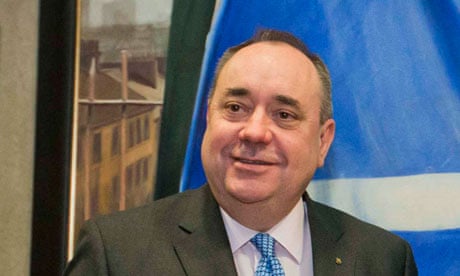
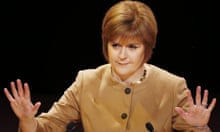
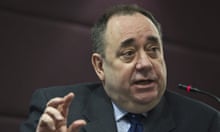



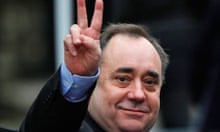
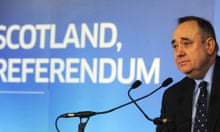
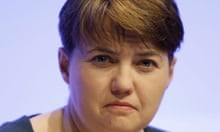
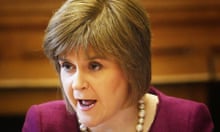
Comments (…)
Sign in or create your Guardian account to join the discussion